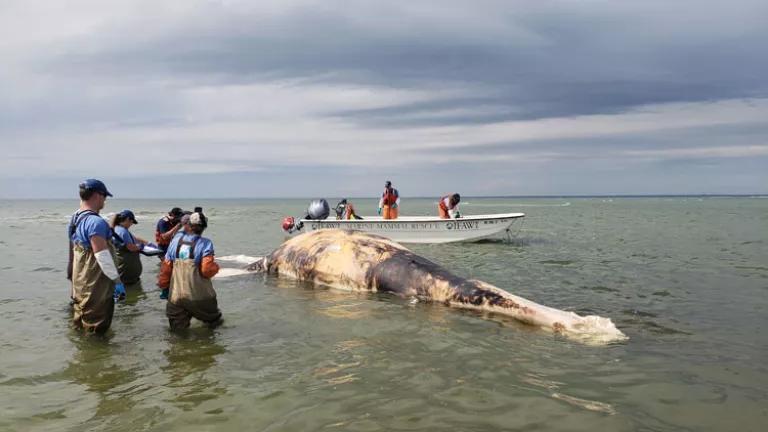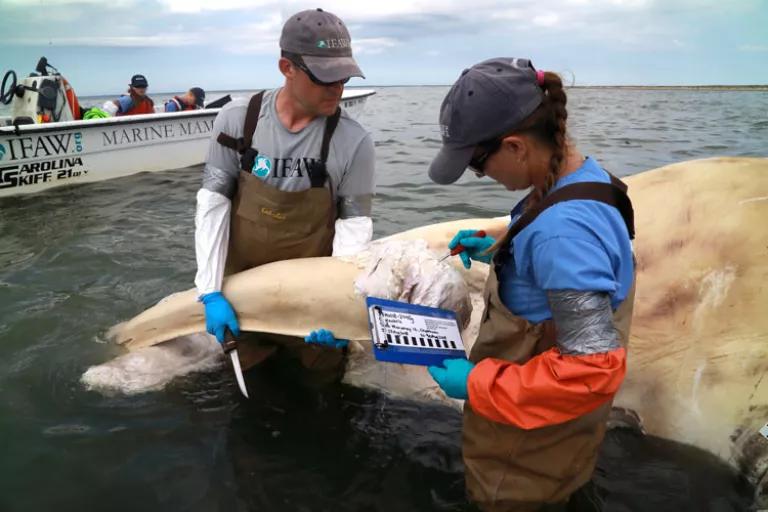
Yet another North Atlantic right whale death has been tragically confirmed by NOAA.
The juvenile male whale was found dead on Monday, August 27, in the waters off Martha’s Vineyard, Massachusetts, his body already in a moderate state of decomposition. He was necropsied the following day by the International Fund for Animal Welfare, and the team reported 11 lesions, including bruises and linear depressions. The necropsy team has since concluded that this whale drowned due to entanglement in fishing gear.
The whale was young, around 18 months old, and was most likely one of only five precious calves born in the 2016-2017 season. He is the second North Atlantic right whale confirmed dead this year. In January, a ten year old female was found entangled in fishing gear and floating off the coast of Virginia. These recent deaths follow the alarming loss of 18 whales in 2017.

With each loss, the clock ticks ever closer towards the extinction of one of our most treasured animals.
There are only around 450 North Atlantic right whales left and less than 100 of those are reproductively active females. Death or painful injuries from entanglement in fishing gear and ship strikes, and chronic stress from noise pollution and other human activities, mean that females are not living long enough or reproducing quickly enough for the species to survive. At this rate, the North Atlantic right whale will be functionally extinct within 20 years or less.
If we want to live in a world with North Atlantic right whales, and stop the suffering of these majestic animals, we need to do more than simply count the deaths. We need to take immediate action. More than anything, the whales need a rapid and targeted transition to “buoyless” fishing gear. The removal of the thousands of thick ropes that whales encounter while feeding and migrating would eliminate their leading cause of death and reproductive impairment. Thankfully, this is a solution that is within reach, but we need to act now.
We need to ask Congress to pass The SAVE Right Whale Act of 2018, support pilot projects to test buoyless gear with fishing industry partners, take a close look at our fisheries import rule, and tell the National Marine Fisheries Service to do everything in its power to protect right whales, as required under the law.
You can help take action by calling on your representatives to support the current actions being taken by Congress and ask for more to be done. If your representative is already leading on this issue, you could show your appreciation by sending a quick note of thanks.
You can find your Congressional representative’s contact information here.

